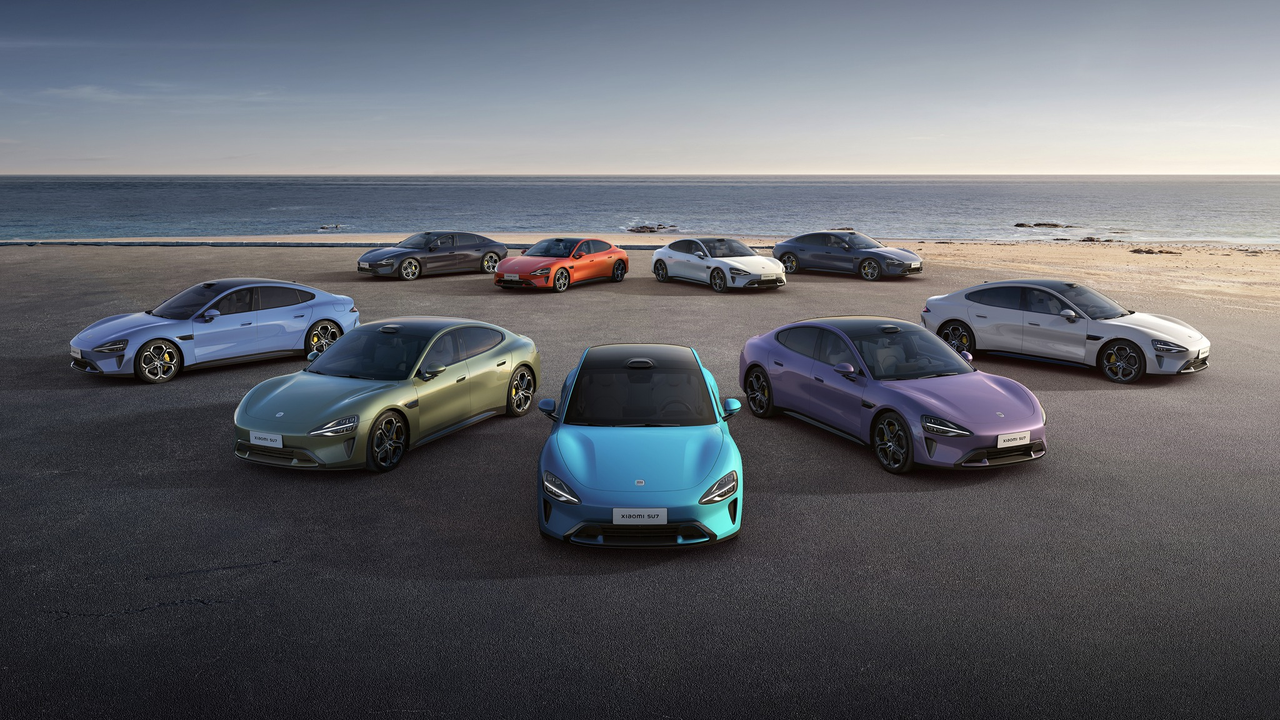
New Delhi: Lei Jun, the founder and CEO of the Chinese smartphone company Xiaomi, likes to keep his cards close to his chest. After the launch of the company’s maiden electric vehicle, SU7, in March this year, he was quoted by the Chinese media as saying that part of the reason for SU7’s success was its confidentiality. The foray into EVs was announced three years back and Jun has since spoken of putting his reputation on the line, in the fight for a “vision I deeply believe in”. There is apparently an electric SUV also in the works, but Jun did not comment on this. For now, the SU7 will be available only in the Chinese market though Jun has spoken of taking it global eventually. On Tuesday, the SU7 is apparently being showcased in India along with other products from Xiaomi India, as part of the company’s 10th anniversary celebrations. Company officials insist that SU7 launch is not on the cards anytime soon, since the Chinese parent has already said that a global foray is at least three years away. So is the car being showcased to test the Indian market? Amid a global plateauing of EV sales, India does offer some hope since sales of electric vehicles continue to increase here. Besides, with Tesla’s on-again-off-again India story, perhaps a strong Chinese competitor may find it useful to make its presence felt. In China, SU7 already seems to have surpassed expectations, with Xiaomi completing over 30,000 deliveries of the car since March, according to sources. The success of the SU7 in the Chinese market is being attributed to its aggressive pricing – the SU7 Max comes for 299,900 yuan (UDS 41,500), less than half of the 698,900 yuan for the Tesla, according to Nikkei Asia.
Why EV?
While launching SU7, Jun had spoken of leveraging 14 years of Xiaomi’s expertise in smartphones, OS, AI, and robotics to say that these learnings were being applied to the Xiaomi EV. “The essence of EVs lies in three key elements: car, electric, and intelligent. Over the past decade, we’ve witnessed tremendous progress in overcoming the challenges of vehicle electrification. In the next decade, I believe the focus is rapidly shifting towards intelligence. This is where the next battleground for the EV market is,” Jun had further said.
The EV entry by Xiaomi comes as the global smartphone shipments contracted in 2023 and though they have rebounded in the first quarter of 2024 as per IDC estimates, growth will remain in low single digits for the next few years. Xiaomi ranked number three in global smartphone shipments in Q1 2024.
The company derives more than half of its revenues from smartphone sales but with global growth plateauing, diversification into new product categories is a natural progression.
Indian EV policy landscape
India’s suspicion of Chinese companies is no secret. So even though there is the new EVehicle Policy which allows cheaper imports of electric vehicles on the assurance of a minimum investment by the OEM to manufacture locally, Xiaomi may need to navigate some delicate questions to be able to make its electric cars in India. At the very least, it would need an Indian partner to harbour any ambitions of manufacturing its EVs in India. The BYD example is pertinent here: despite signing up a local Indian partner, its expansion plans have not fructified. And MG Motor was nudged to get an Indian partner.
The EVehicle policy also has other requirements, including a minimum investment commitment of INR 4150 crore, setting up a manufacturing facility within three years and reaching 50% localisation level within five years. If an OEM satisfies all these conditions, it will be allowed to import electric vehicles priced USD 35,000 and above at just 15% import duty. Otherwise, India levies steep import duties on cars priced above USD 35000, making them unbearably expensive.
Xiaomi is not entirely new to the way things are done in India. For its smartphone business, it is already in the process of expanding local sourcing and may participate in the new performance linked incentive scheme being rolled out by the Ministry of Electronics and Information Technology (MeitY) for boosting electronic components manufacturing.
Also, the EVehicle policy – which is yet to be notified – could change significantly and relax some of its criteria for boosting manufacturing of electric vehicles in India. Xiaomi’s key competitor in its home market, Tesla, seems unsure of entry into India at this point in time, after indicating a strong interest for months and getting the policy contours aligned almost entirely with its wishlist. So could Tesla’s dithering work to the Chinese smartphone maker’s advantage? This remains to be seen.
















